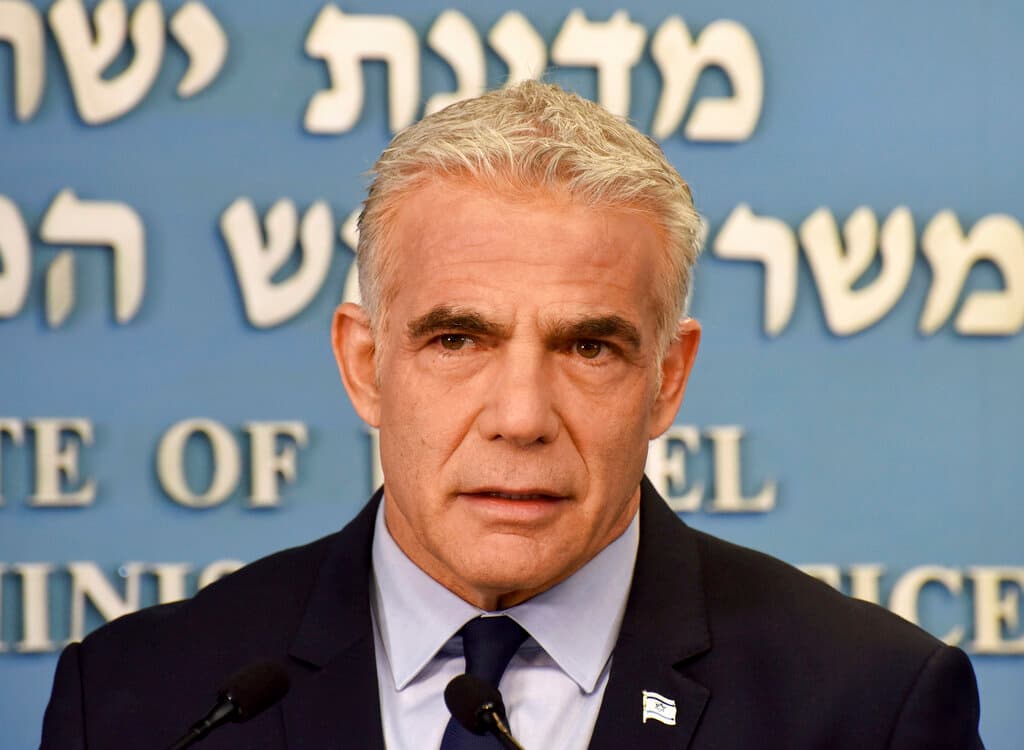Trigger-Happy or Gun Shy? That Dilemma Seems To Have Cost Israel a Beloved Officer
‘No one will dictate our rules of engagement,’ Lapid warns.

Are Israeli soldiers trigger-happy or gun shy? The worldwide reaction to the death of an Al Jazeera reporter, Shireen Abu Akleh, led many Americans to believe the former. After last night’s death of a commander in the Israeli Defense Force, Major Bar Falah, many in Israel fear it’s the latter.
Last night’s exchange of fire on the border line separating the northern West Bank from Israel near Jenin erupted shortly before midnight, when an IDF monitor noticed two suspicious figures approaching the border from the Palestinian side. Two army units were dispatched to the area.
One of the units took positions on the Israeli side, while the other crossed into the West Bank to encircle the would-be infiltrators. Even at this point the Israeli troops thought the two men were unarmed. According to initial IDF reports, the Israeli fighters at first believed that they were facing wayward children.
Then the Palestinians started firing.
After the two men were killed in the fire exchange, it turned out one of them, Ahmed Aded, was a member of the Palestinian Authority’s security forces. Much of the PA funding comes from America, under the assumption that the Palestinian secutity officials would cooperate with the IDF in combating terrorism.
In the past that cooperation functioned well, but now, as a retired IDF former commander of that area, General Nitsan Alon, told the Israeli website YNet, “The PA is unable to do it, as its legitimacy among Palestinians is fading away.”
Security officials say that cooperation with the PA in combating terrorism has weakened specifically in the northern West Bank, in the Jenin and Nablus area, where Hamas and the Iranian-backed Palestinian Islamic Jihad are gaining power.
Some PA men sympathize with these terrorist organizations, or even join them. Prior to his death in last night’s gun fight, Aded reportedly posted on his social media accounts comments that cheered on terrorist attacks in Israeli cities.
A new and significant wave of terrorist activity — where men from that area crossed the border into Israeli cities to kill civilians — started early this year. The IDF, which previously refrained from entering cities under the PA’s control, now confronts armed gangs in that area almost daily.
Covering one such battle near Jenin on the morning of May 11, Abu Akleh was killed. A recent IDF report concluded the Al Jazeera reporter was likely hit by a stray bullet from the Israeli side. The army also reported that the death was unintentional, which led to an outcry in America, including calls for an outside “criminal” investigation.
Earlier this month Foggy Bottom appeared to buckle under the pressure. “We continue to press our Israeli partners to closely review its policies and practices on rules of engagement,” the state department deputy spokesman, Vedant Patel, said on September 6.
Israelis were aghast. “No one will dictate our rules of engagement to us when we are the ones fighting for our lives,” Prime Minister Lapid declared. Following Jerusalem’s uproar the Biden administration walked back Mr. Patel’s statement.
Yet, invoking the Abu Akleh incident, American officials have been pressuring their Israeli counterparts to be extra cautious in avoiding the deaths of uninvolved civilians.
Meeting the Israeli defense minister, Benny Gantz, on Monday for a talk about Iran, Washington’s ambassador at the United Nations, Linda Thoma Greenfiled, “underscored the critical need for accountability for the killing of Palestinian-American journalist Shireen Abu Akleh,” according to the ambassador’s office.
There is no direct evidence that last night the Israeli troops sacrificed one of their own to save the lives of two unidentified Palestinian men. Yet, the event that killed a beloved IDF unit commander exposes a dilemma faced by all armies that aspire to avoid innocent casualties.
The upshot of that dilemma is that war is a messy endeavor. Two years ago in Afghanistan an American-operated drone, dispatched to kill ISIS terrorists, killed at least 30 pine-nut farmers resting after a hard day in the fields. No huge headlines led the world press, as in the Abu Akleh case.
Split-second decisions on chaotic battlefields at times result in deaths among the uninvolved. Being overly criticized when such mistakes happen, Israelis refrain from lecturing the Pentagon, or other terror-fighting armies, about “rules of engagement.”
The additional scrutiny the IDF gets has taught its troops to be extra cautious when civilians are involved. Then again, the danger of being overly trigger shy is the loss of lives, as in the case of Major Bar Falah.

